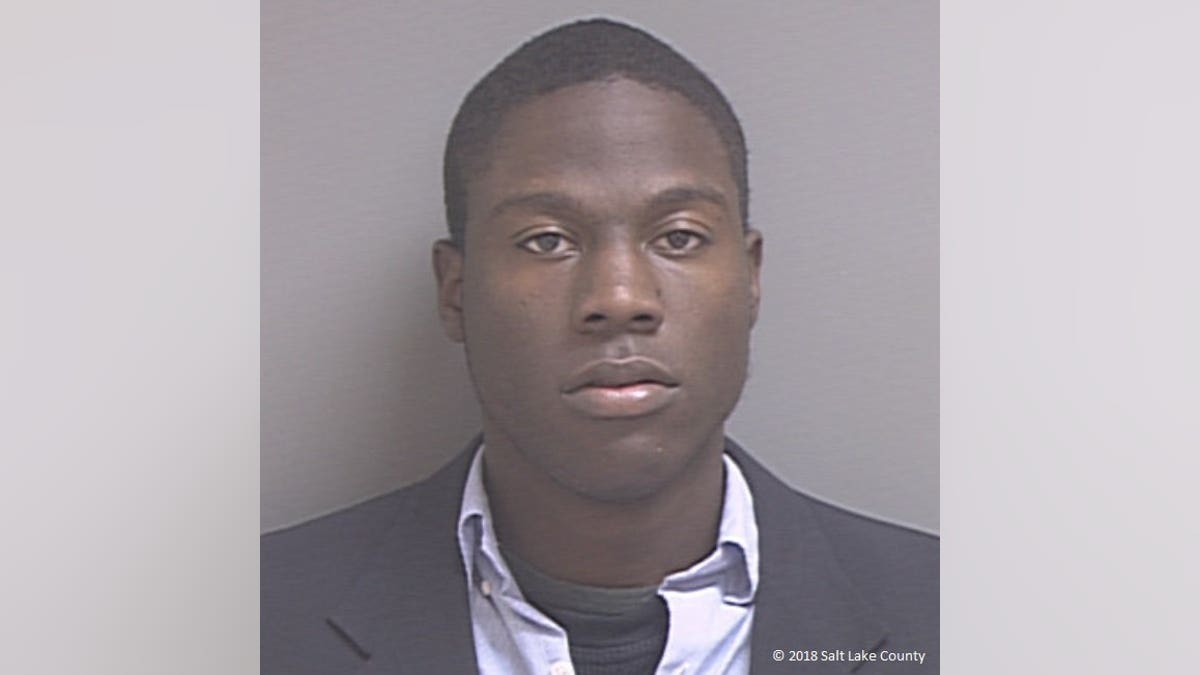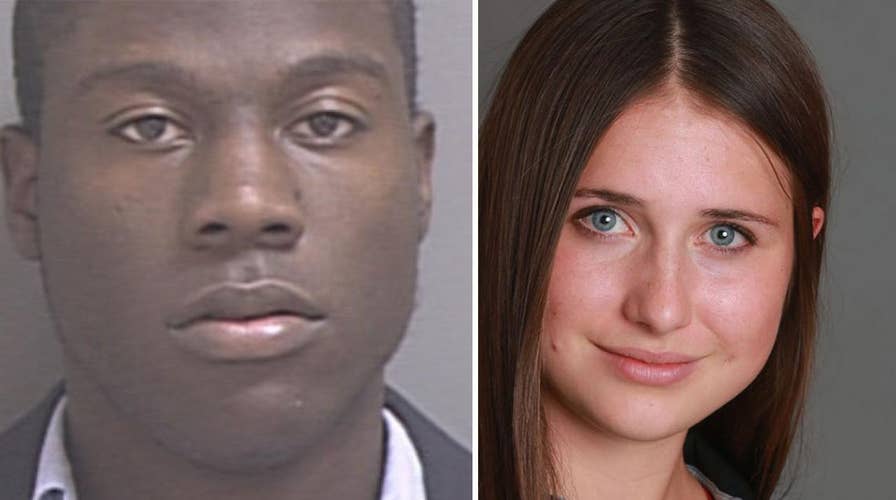University of Utah student killed, gunman found dead
The murdered University of Utah student has been identified as Lauren McCluskey. The alleged killer, Melvin Rowland has been found dead by a self-inflicted gunshot wound.
A University of Utah student who police say was murdered by her ex-boyfriend told officers she wired $1,000 to an account earlier this month to prevent the release of "compromising pictures" of the pair, investigators said Thursday.
University Police Chief Dale Brophy told reporters that Lauren McCluskey, 21, reported the extortion to his officers on Oct. 13, nine days before she was found shot dead outside an on-campus dormitory. The suspect in her murder, 37-year-old Melvin Rowland, was found dead that same evening of a self-inflicted gunshot wound inside a Salt Lake City church.
Brophy said that McCluskey had ended her relationship with Rowland on Oct. 9 after she discovered that he had lied to her about his age and was a registered sex offender. McCluskey initially declined police assistance in dealing with Rowland, but later reported receiving numerous emails and messages using different names trying to lure her to locations in addition to the extortion attempt. Investigators now believe the messages all came from Rowland, who Brophy called a master manipulator.
"If his lips were moving, he was lying," Brophy said of Rowland. "I don't think he told the truth to anybody based on our investigation."
Rowland was spotted on surveillance video at various locations around the University of Utah's campus during the weekend before McCluskey's murder. Authorities believe he was trying to confront her. Hours before the killing, Rowland was in McCluskey's dorm building socializing with some of her friends. He later confronted McCluskey in the building parking lot, dragged her into a car he had driven to campus, and shot her multiple times.
After shooting McCluskey, Rowland was picked up on campus by a woman he met online. They went to dinner, visited the state Capitol and went to her apartment where Rowland took a shower.
The woman later called police when she saw photos of the man being sought for the campus shooting.
Later that night, after the woman dropped Rowland at a coffee shop, police tracked him to the church where he killed himself.
Rowland got the gun by telling an acquaintance that his girlfriend wanted to learn to shoot.
Brophy said it appears the woman who picked up Rowland on campus and the person who loaned him the gun had been duped and will not face charges.
Police knew Rowland was a sex offender but not that he was on parole, Brophy said. He added that police didn't start the formal extortion investigation until six days after her Oct. 13 report due to workload issues.

Lauren McCluskey, a senior at the University of Utah, was shot and killed in a car near a dormitory. (Steve C. Wilson / University of Utah)
Kaitlin Felsted, a spokeswoman for the Utah Department of Corrections, said police didn't make parole officers aware of the complaint filed by McCluskey.
In the early stages of the investigation, officers didn't have enough information to pass on to any other law enforcement, Brophy said, adding that there were no indications from McCluskey that Rowland was threatening physical violence.
University of Utah president Ruth Watkins said outside investigations are being launched to assess campus security and police protocols to determine if improvements can be made to prevent future shootings.
Watkins said so far she has found no mistakes in how police handled the case. Brophy said he welcomes the reviews.
UNIVERSITY OF UTAH STUDENT WAS ON PHONE WITH PARENTS BEFORE DEADLY SHOOTING
Earlier in the day, Gov. Gary Herbert said corrections and parole officials had launched investigations into the handling of the case.
"Clearly in hindsight, we're going to say, 'You should have done this, you should have done that,'" Herbert said during his monthly televised news conference at KUED-TV
He noted, however, "You never know when these things are going to occur."

Melvin Rowland, a 37-year-old registered sex offender, is believed to have shot and killed University of Utah student Lauren McCluskey. He was found dead with from a self-inflicted gunshot wound about 4 miles from campus.
Rowland was paroled in April when he told the parole board that he was a changed man after being a peer leader in prison had helped him tap into his empathy and learn to follow the rules.
He spent nearly a decade in prison after pleading guilty in 2004 to trying to lure an underage girl online and attempted sex abuse charges, according to court records.
After he was charged, a woman came forward to report he had sexually assaulted her after a separate online meeting a few days earlier.
Rowland, a native of New York, was twice sent back to prison for parole violations that included possessing pornography and failure to complete therapy.
MARRIED COUPLE FOUND DEAD AT INDIANA HOME IDENTIFIED AS TEACHERS
He blamed his "thinking errors" for the actions that kept sending him back in prison, according to recordings of parole hearings from 2010 to 2018 released this week by the Utah Board of Parole and Pardons.
Rowland said at a hearing in 2012 that he was a womanizer who manipulated women to get what he wanted.
Brophy offered the same assessment. He said McCluskey met Rowland last month at a bar where he was working security and started dating him. He visited her often in her dorm and made friends with other students in the building.
"He was very, very good at getting people to trust him," Brophy said. "Lauren was no different."
Click for more from Fox13Now.com.
The Associated Press contributed to this report.









































